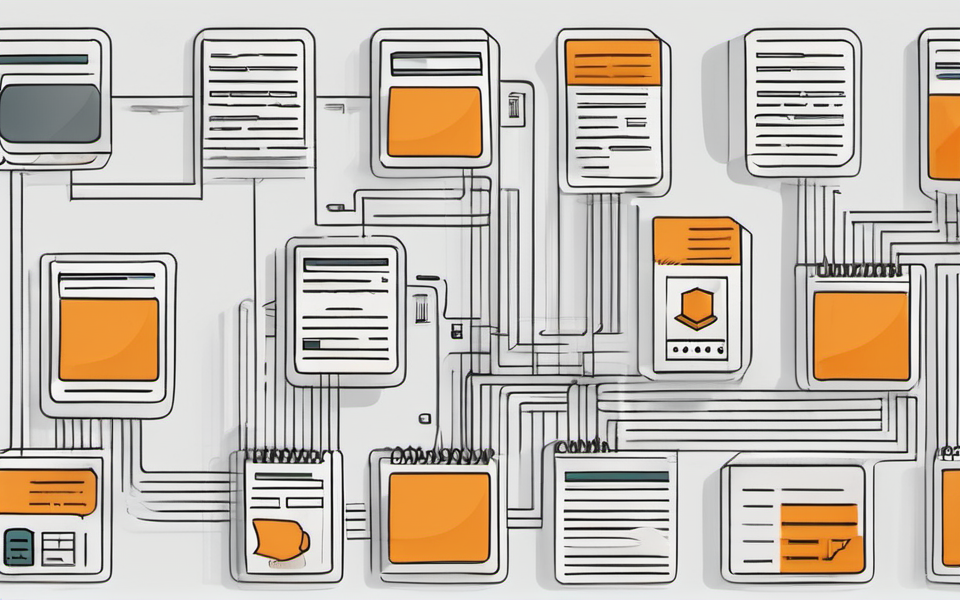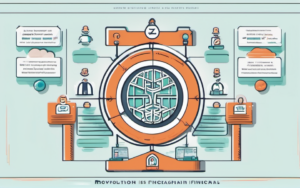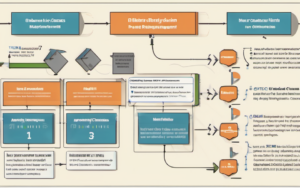Did you know that there’s a technology changing how we make agreements and do business, without needing a middleman? It’s called blockchain, and with it, smart contracts are making waves in almost every industry. Buckle up, because you’re about to dive into a fascinating world!
What is Blockchain?
Blockchain is like a digital ledger that keeps track of all sorts of transactions. Imagine a notebook where every page is a block, and each block stores information. Now, think about how these pages (blocks) are linked together to form a chain. Voila! That’s a blockchain for you! It’s safe because once information is added, it can’t be changed without messing up the entire notebook, making it really secure. Plus, everyone gets a copy of this notebook, so it’s super transparent!
How Does it Work?
Every time something happens—like a person sending money to another person—a new block is created. This block is then verified by many computers (called nodes) around the world before it’s added to the chain. This process is known as “mining,” and it ensures the transaction is genuine. Since everyone has access to the blockchain, anyone can see the added block, making it hard to cheat or hack the system.
Why is Blockchain Important?
Blockchain is important because it makes things super secure, and trustless—meaning you don’t need to trust a third party to confirm the transaction for you. It’s like having a trustworthy friend who always tells the truth about what’s going on. This has huge implications for industries like finance, healthcare, and even voting systems!
Introducing Smart Contracts
Now, let’s talk about smart contracts. Ever heard of a vending machine? You put money in, press a button, and get your snack. Smart contracts work similarly. They are just computer programs that automatically do stuff if certain conditions are met. For example, if you pay for an online course, a smart contract could automatically grant you access without needing a human to press any buttons.
How Do Smart Contracts Work?
Smart contracts sit on the blockchain. They have code written in them, and they perform actions when specific conditions are met. For instance, if “A” happens, then “B” will automatically follow. This makes them super reliable because once set up, they can’t be changed, and they work automatically without errors.
Benefits of Smart Contracts
The biggest perk? No middlemen! Because smart contracts do things automatically, you don’t need lawyers, banks, or any intermediaries to confirm the process. This can save heaps of time and money. Plus, they’re transparent—everyone can see what’s supposed to happen and verify it.
These contracts are also immutable, meaning once they’re on the blockchain, they can’t be altered. This ensures that what you agreed upon is what will happen, which is a big deal for trust and security.
Real-World Applications
The wonders of blockchain and smart contracts aren’t only limited to the tech world. They have real-world applications that are transforming various industries. In finance, they’re used for secure, speedy transactions without the banks’ involvement. In supply chains, each step can be tracked transparently, reducing fraud and increasing trust. Even in real estate, buying a house can now be as easy as pushing a button, with all the paperwork handled seamlessly through smart contracts.
Moving Forward
As this technology continues to grow, more and more industries are finding innovative ways to leverage it. With ongoing developments, the future looks bright and filled with possibilities. If you haven’t already, it’s time to familiarize yourself with blockchain and smart contracts because they are set to revolutionize the way we live and do business. Welcome to the future—it’s already here!




